The year 2020 brought countless unexpected challenges that have fundamentally changed how we live in our homes. As it (finally!) comes to a close, we're stepping into 2021 with a different perspective and a deeper appreciation for the roles our homes play in our daily lives.
With the arrival of the coronavirus pandemic in early spring, many people pivoted to working, playing, exercising, and socializing from home, making the way we furnish and decorate our living spaces more important than ever. "On the upside, it has forced homeowners to reflect, dissect, and evaluate how they live in their homes, how it makes them feel, and how, ultimately, they want to change and improve upon their relationship with home," says Louisiana interior designer Lance Thomas of Thomas Guy Interiors.
To find out what home design will look like in the coming year, we talked to interior designers and industry experts to discover their top 2021 design trends, including the most popular decorating styles, colors, and materials. If you're looking for fresh ways to update your home for the new year, here are the interior design trends experts predict are going to be huge.
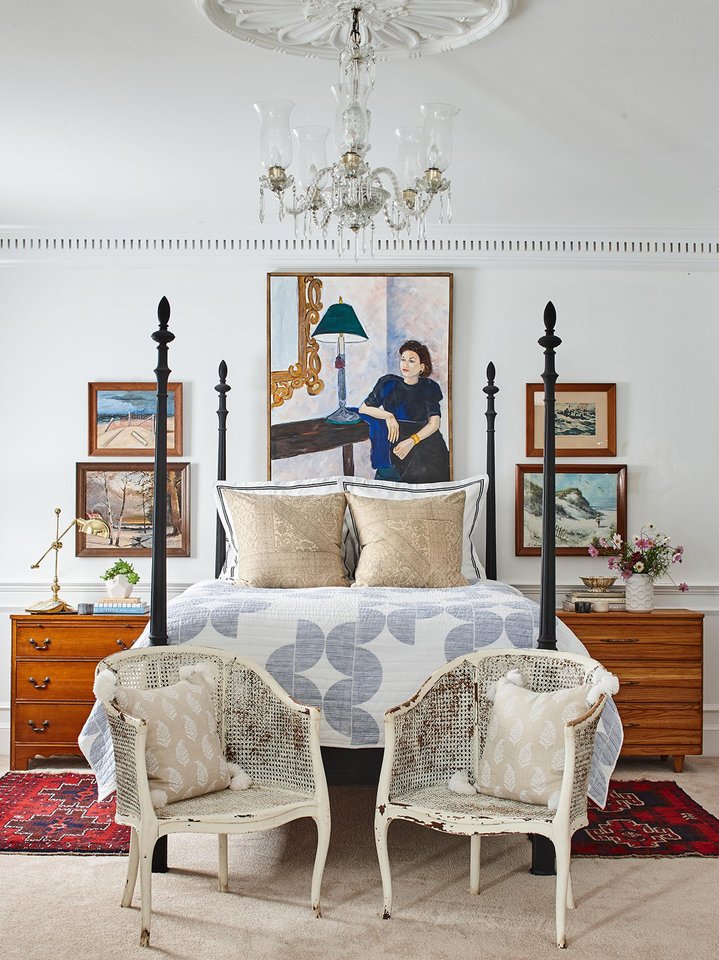
1. Nods to Nostalgia
One of the biggest 2021 decorating trends isn't new at all. Design styles of the past, including Victorian-era, Art Deco, and grandmillennial aesthetics, are making a comeback as people turn to nostalgia for comfort and security. According to a survey conducted by online interior design service Modsy, traditional and classic interior design styles rose in popularity by 6% and 11% respectively, despite the fact that these styles have consistently been some of the least popular among Modsy customers in previous years.
"We've been watching this trend in fashion for some time now via lace collars, rich velvets, and ruffles," says Anna Brockway, co-founder and president of Chairish, an online vintage marketplace. She predicts the old-meets-new trend will emerge through gilded finishes, floral prints, and ornamental details that offer contemporary takes on historic styles.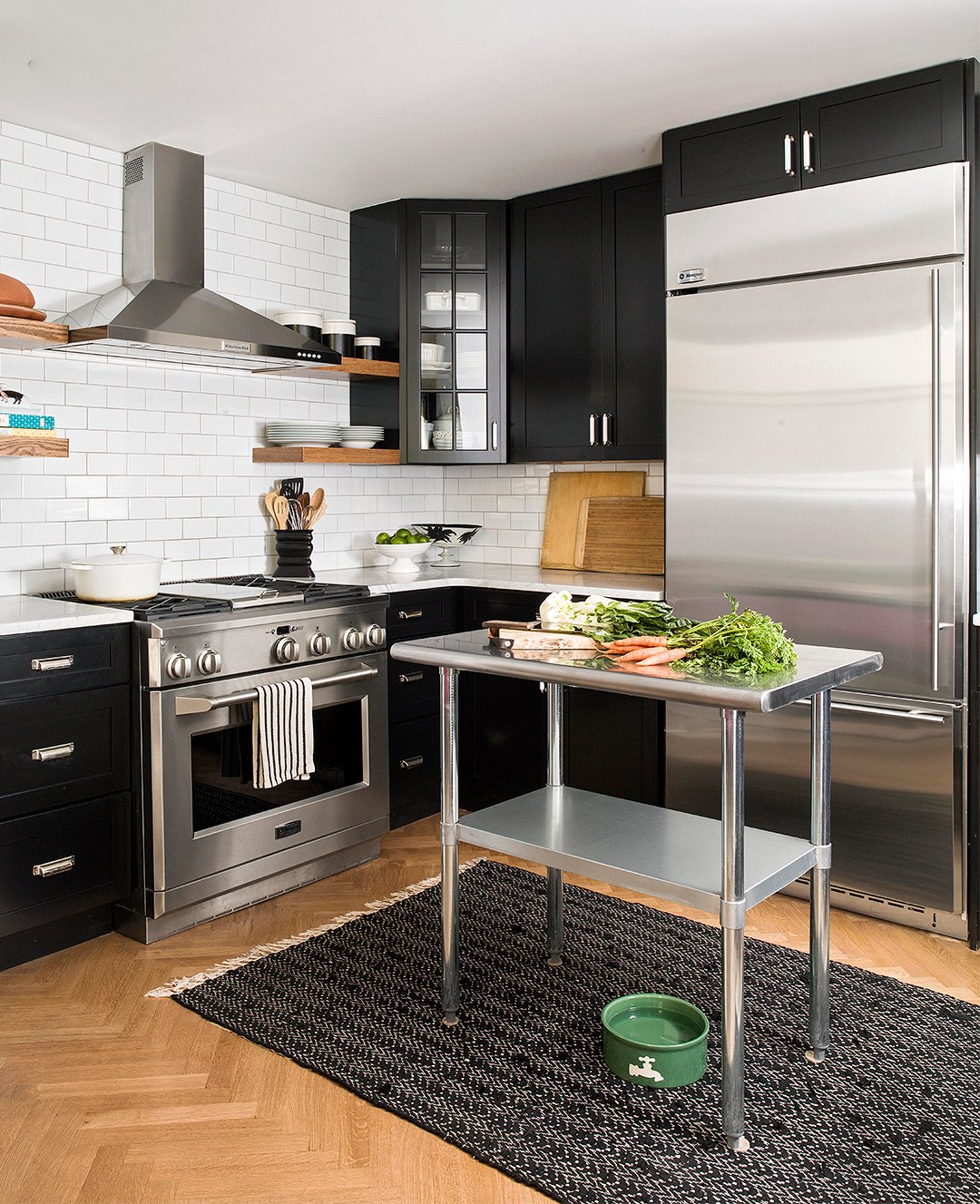
2. Easy-to-Clean Fabrics and Surfaces
COVID-19 put cleanliness top of mind for many homeowners, and designers predict easy-to-clean materials will rise in popularity as a way to curb the spread of germs indoors. Austin-based interior designer Sara Barney of BANDD DESIGN expects to see an increase in non-porous materials such as glass and metal, which are less susceptible to bacteria growth and offer no-fuss cleaning. On upholstery, rugs, and other soft surfaces, performance fabrics specially designed to resist stains and stand up well to daily wear will likely rise in popularity. Texas interior designer Ashley Moore of Moore House Interiors predicts these kid-friendly materials will be used throughout living spaces, especially as remote learning continues for some children.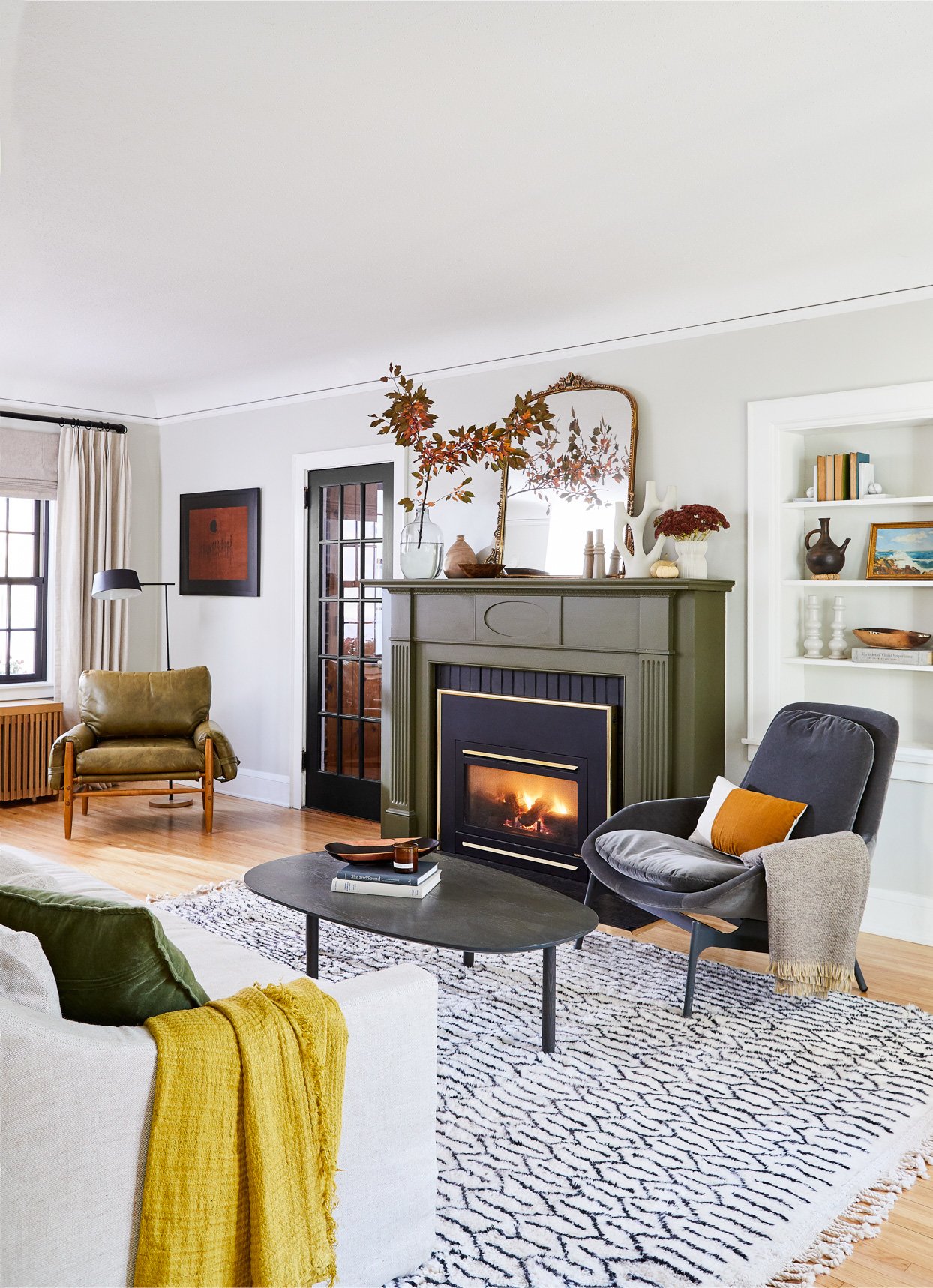
3. Warm, Earthy Colors
As for colors, expect shades to warm up in 2021. "With everything that we've collectively been through in 2020, our homes need more warmth, comfort, and coziness now more than ever," says Toronto-based interior designer Tiffany Leigh Piotrowski. Warm neutrals and rich earth tones are a top 2021 color trend that embodies those hygge characteristics. Vancouver designer Gillian Segal predicts organic shades such as camel will take the place of gray, while deep, neutral-like colors including olive green and burnt orange will continue in popularity. Look to paint and fabric that have yellow or red undertones for a homey, inviting effect.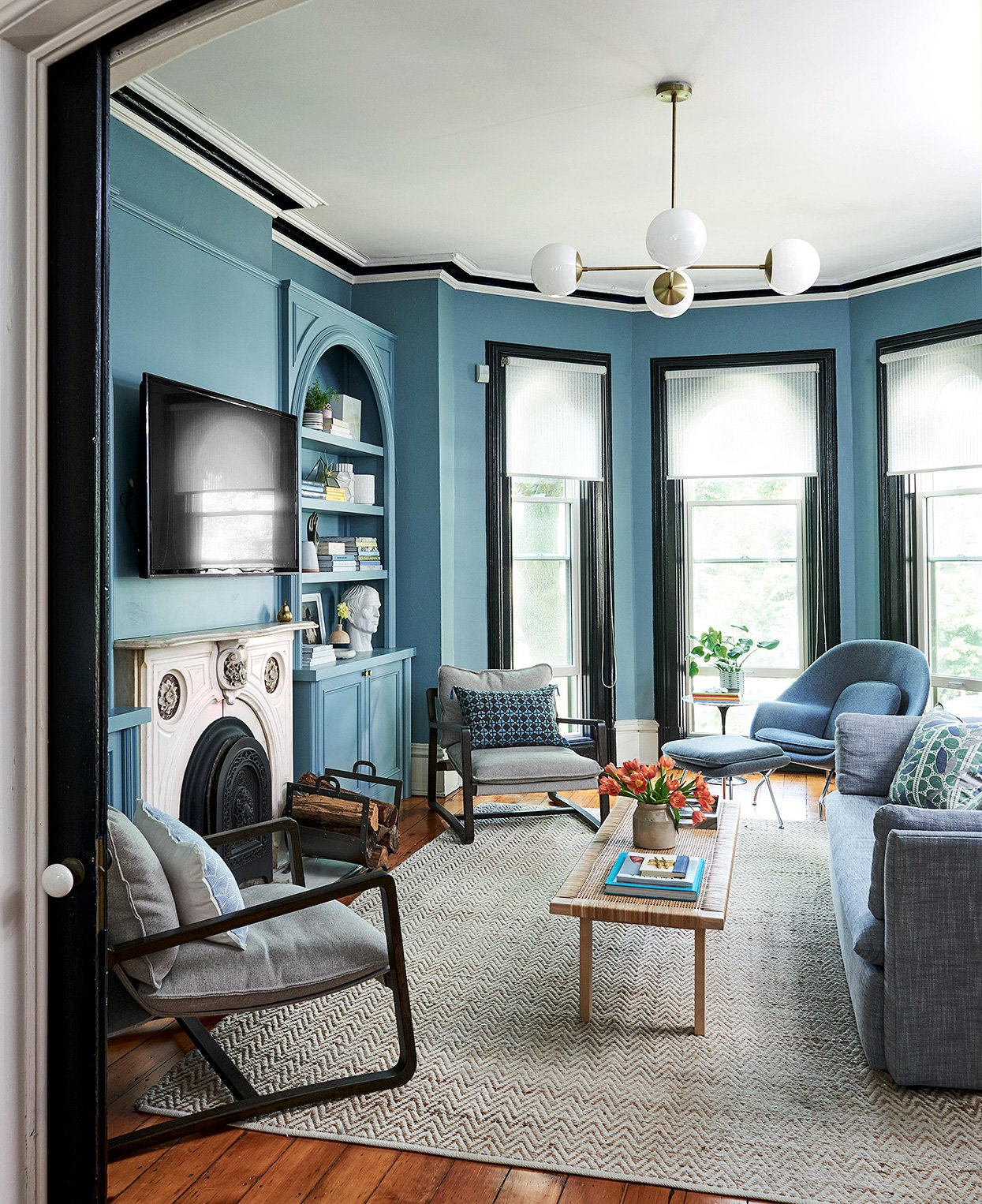
4. Calming Blues
On the opposite end of the color spectrum, soft shades of blue have a calming effect that experts predict homeowners will crave in 2021. For example, Etsy selected sky blue as its 2021 color of the year after seeing a 39% spike in searches on the site for light blue items over the past three months, compared to the same time period last year. Because soft powder blues remind of the sky and water, they help foster a soothing atmosphere inside homes, which is more attractive than ever. "Colors have such a high impact on our mood and behaviors inside our homes," says Los Angeles interior designer Gabrielle Santiago. "Shades of blues are timeless and the perfect color to relax our minds and center ourselves—something we so desperately need after the chaos of 2020."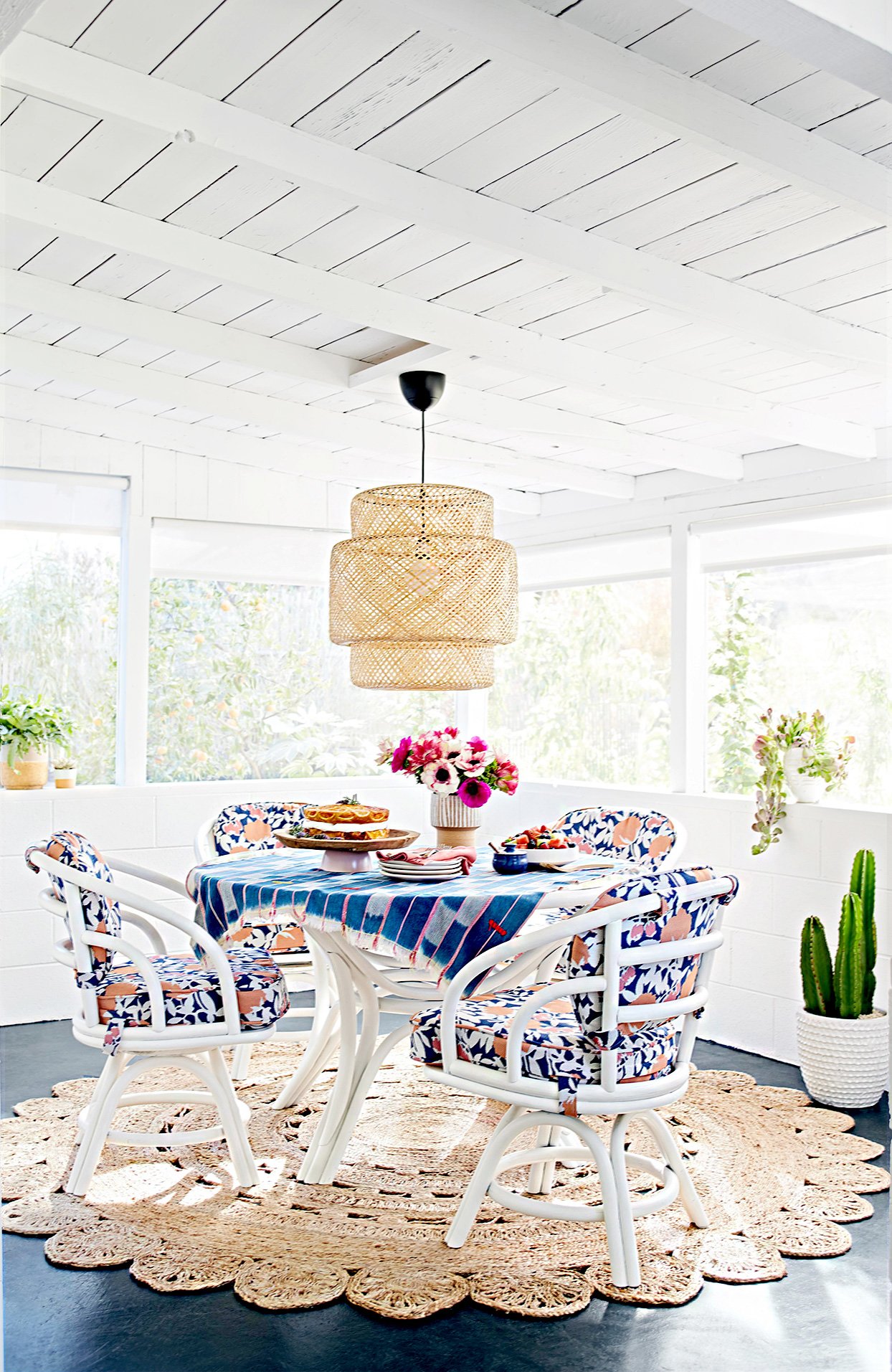
5. Natural Materials
We saw a renewed interest in rattan furniture and cane webbing over the past year, and this trend isn't going anywhere in 2021. Natural materials such as light-toned wood, jute, leather, ceramic, and live plants will continue to furnish homes in the new year, says Alessandra Wood, vice president of style at Modsy. She suggests layering a variety of natural finishes within a space to create depth and texture. Top a large jute rug with a smaller wool one, for example, or accessorize with pillows and throws made with organic fibers.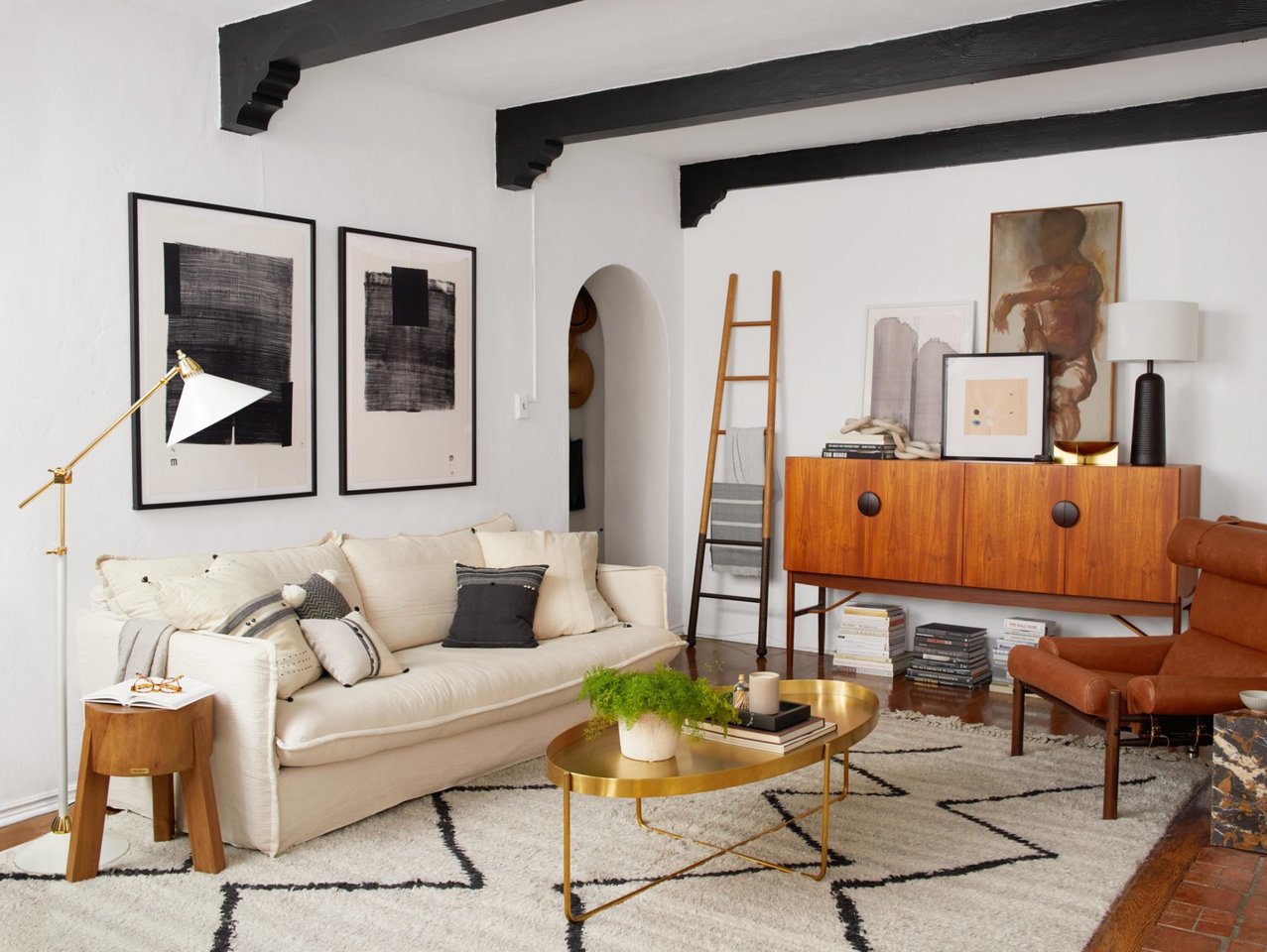
6. Closed Floor Plans
Throughout 2020, many families had to learn how to co-exist under the same roof from morning until night, and as we head into a new year, the appeal of open floor plans, where each room flows seamlessly into the next, has greatly diminished. "The pandemic has forced us to recognize how important our space is, and open floor plans aren't always the best decision when it comes to intentionally using a room," Santiago says. Carving out a designated space for different activities, such as remote work or homeschooling, allows for more privacy and limits distraction, she says.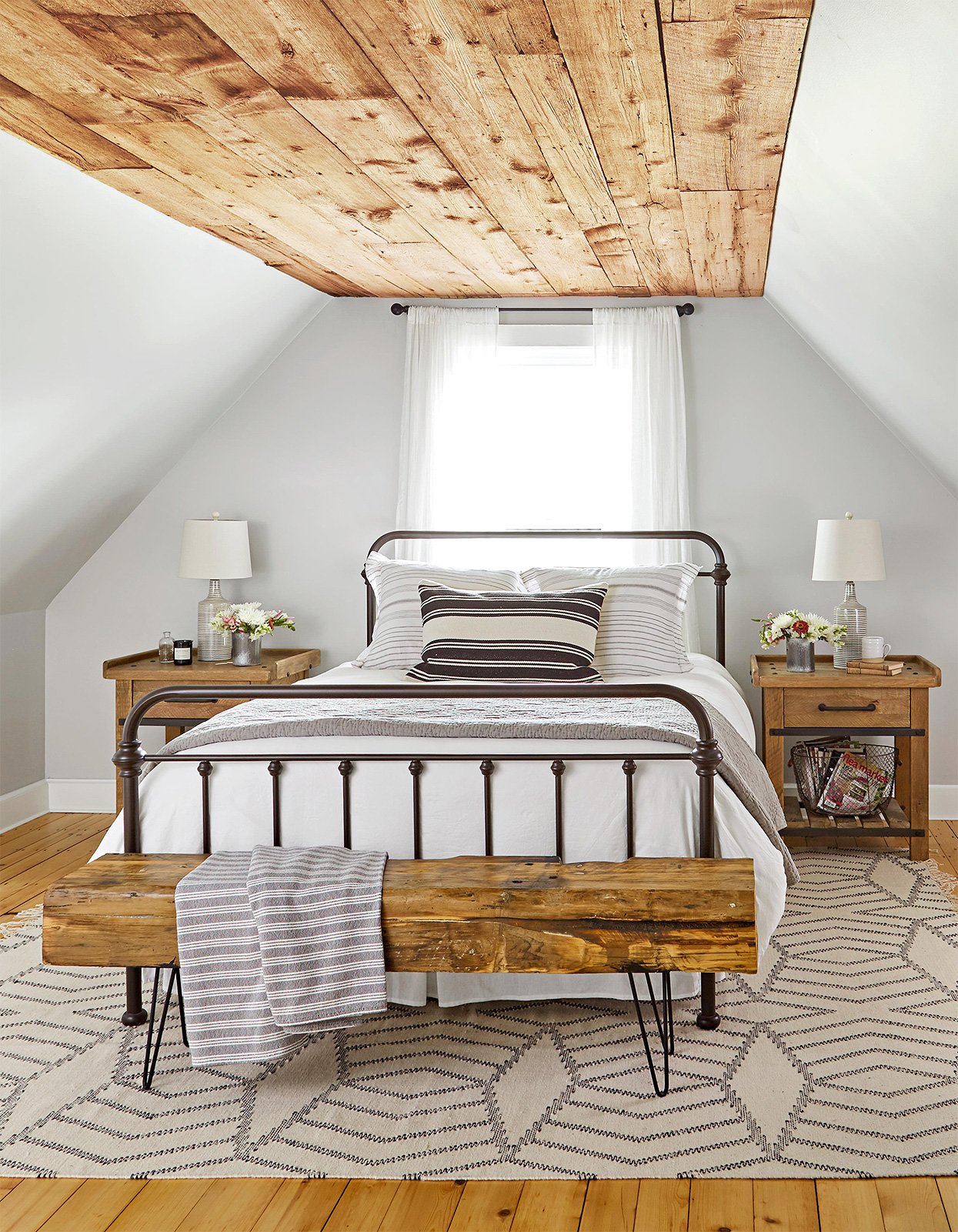
7. Sustainable Furnishings
An increased focus on sustainability is a broader trend that impacts many aspects of our daily lives, including how we furnish our homes. We're seeing a shift with shoppers increasingly turning away from cheaply made, big-box store furniture in favor of high-quality pieces that are friendlier on the environment. "As fast fashion extends its reign over furniture and decor, we're seeing pushback and a desire among our customers to shop sustainably and invest in quality pieces they can keep for years," says Wood. When buying furniture and decor, she suggests seeking out materials that are certified sustainable by the manufacturers so you can feel good about the piece's environmental impact.



![A Tranquil Jungle House That Incorporates Japanese Ethos [Video]](https://asean2.ainewslabs.com/images/22/08/b-2ennetkmmnn_t.jpg)









